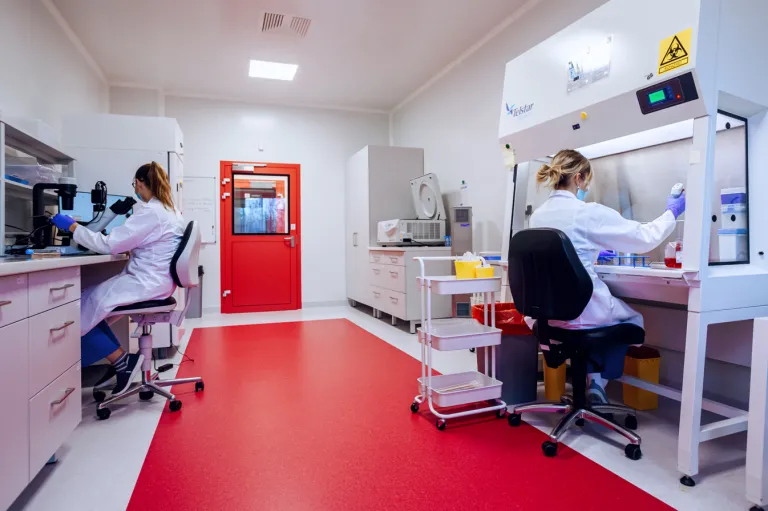Probiotics are increasingly used for pregnant women. These preparations are indicated not only for antibiotic therapy. As it turns out, they may have an effect on reducing the incidence of gestational diabetes. How do probiotics work and how to choose the best one?
Probiotics in pregnancy – how do they work?
Probiotics are live cultures of bacteria that are designed to provide a proper biocenosis in the area where they are used. They occur naturally in the human body and are responsible for creating the right conditions, among other things. In the gastrointestinal tract or the female reproductive tract. The microflora of the intestines and vagina, i.e. the collection of all kinds of organisms that live there, undergoes numerous changes during pregnancy, especially during the third trimester. This can result in the uncontrolled proliferation of microorganisms that cause, among other things. Recurrent infections of the reproductive tract. The use of probiotics therefore ensures that the microflora is maintained in the right composition thereby reducing the risk of infections.
Read also:
Intimate infections in pregnancy
Probiotics in pregnancy – when to use?
The decision to use probiotics during pregnancy should always be consulted by the mother-to-be with her pregnancy doctor. Due to their beneficial effects and the practical lack of side effects of their use, many gynecologists choose to include this type of supplementation during pregnancy, especially for women with recurrent reproductive tract infections.
Probiotics in pregnancy – how do they affect gestational diabetes?
Probiotics, in addition to their beneficial effects on gut and vaginal microflora, may also reduce a woman’s risk of gestational diabetes
[1]
. Although the mechanism responsible for the occurrence of this phenomenon is not fully understood, it is suspected that normal intestinal bacterial flora positively affects glucose metabolism in the body and increases cell sensitivity to insulin. This causes glucose molecules to enter them more easily, thereby lowering blood sugar levels.
Probiotics in pregnancy – how do they affect allergies in the baby?
According to recent scientific reports, the use of probiotics in women at risk of having a child with atopic dermatitis or other allergies reduced the risk of the disease in offspring
[2]
. Experts believe that this is related to, among other things. with the body’s increased tolerance to foreign proteins through the correct amount of “good” bacteria in the gastrointestinal tract and in a woman’s reproductive tract, thereby reducing the immune system’s response, which causes the typical allergy symptoms.
Probiotics in pregnancy – how to choose?
Probiotics for pregnant women come in oral or vaginal globules. Numerous preparations designed for pregnant women are available in pharmacies without a prescription. However, it is always a good idea to consult with your health care provider about the choice of probiotics during pregnancy. Based on his knowledge, he will certainly suggest the appropriate product that will be best in your case. It is also important to remember that antifungal drugs or antibiotics are necessary for fungal or bacterial infections. Probiotics are then included as an aid to rebuild the woman’s normal bacterial flora.
[1]
Isolauri, E., Rautava, S., Collado, M. C., & Salminen, S. (2015). Role of probiotics in reducing the risk of gestational diabetes. Diabetes, Obesity and Metabolism, 17(8), 713-719
[2] C.K. Dotterud, O. Storro, R. Johnsen, T. Oien. Probiotics in pregnant women to prevent allergic disease: a randomized, double-blind trial. British Journal of Dermatology, 2010; 163: 616-623
Rate this article:












